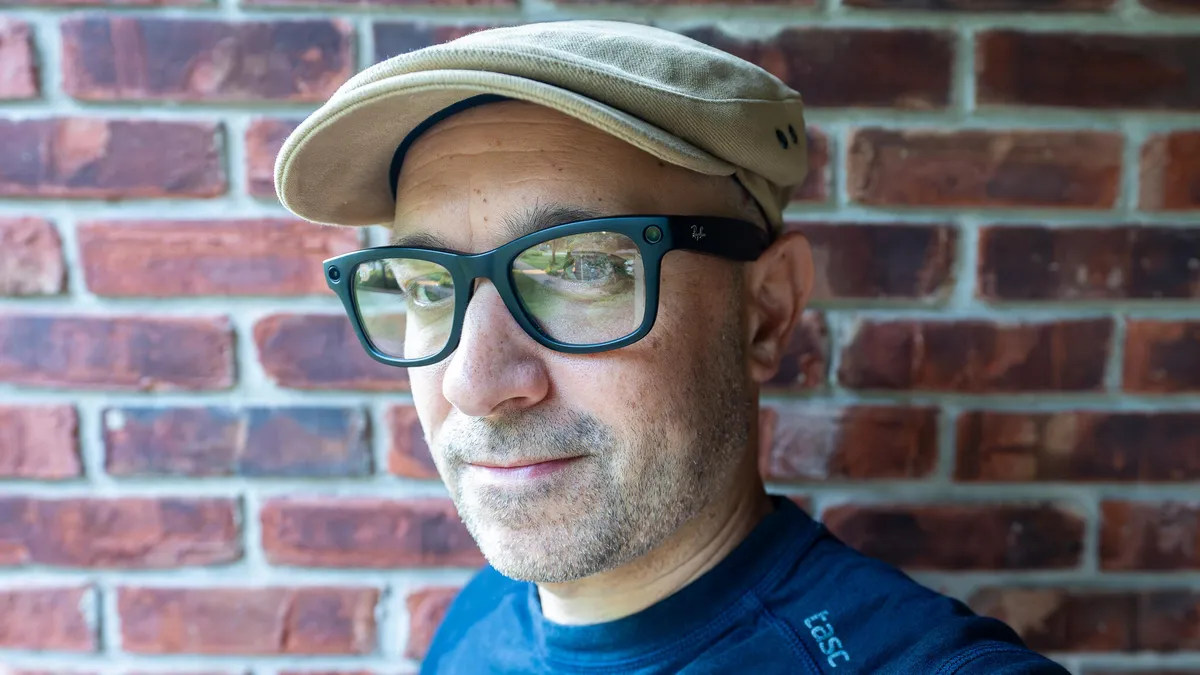
Lee Schmidt, a retired veteran, wanted to know more about the license plate cameras tracking him in Norfolk, Virginia, where he lives.
So he sued with a co-plaintiff and a legal nonprofit and got an answer: 176 cameras across the city logged his location 526 times between Feb. 19 and July 2, according to a Monday court filing. That’s about four times per day.
“It’s a crazy high number. It was shocking,” Schmidt told NBC News. “The creepiness level just went straight up.”The cameras are operated by Flock Safety, a company that has grown swiftly in recent years and now bills itself as “the largest public-private safety network” in the country. Founded in 2017, Flock offers a wide range of data-generating surveillance equipment, including drones, audio gunshot detectors and body-worn video cameras for police officers, which can then be combined with the company’s software products that include everything from searchable databases to real-time maps.
Flock is relatively new to the automatic license plate readers (ALPR) market, but has become the largest provider of the technology in the country. Flock sells a subscription model to install and maintain ALPRs and give police, businesses and homeowners associations a constant stream of surveillance data.
The lawsuit is specifically concerned with Norfolk’s ALPRs, finding that the company struck a $2.2 million deal with the city for the camera system through the end of 2027.
Surveillance has become near-omnipresent in America, and with more awareness and understanding of technology, citizens are starting to ask more questions about what and who is watching.
Schmidt is one of two plaintiffs in the lawsuit against Norfolk. The local police department is one of more than 5,000 across the country that use ALPRs from Flock Safety. Flock also sells its technology to over 1,000 commercial businesses, as well as to homeowners’ associations.
The Norfolk Police Department referred NBC News to the city of Norfolk for comment. A spokesperson for the city said it does not comment on ongoing litigation.
For years, ALPRs have quietly blanketed U.S. roads and highways, snapping photos of every car that goes by and storing the time and location in case it later proves helpful for a police investigation. Usually, drivers don’t know how frequently their trips are logged.
But the lawsuit against Norfolk sheds light on just how frequently drivers’ movements are recorded without a warrant for that information.
Flock began installing cameras in Norfolk, home to around 230,000 people, in 2023, and there are now 176 around the city, the filing says. Norfolk’s license data has been accessed around 200,000 times.
Schmidt’s co-plaintiff, Crystal Arrington, a health care worker who lives nearby, was surveilled even more. Her location was logged 849 times between Feb. 19 and July 3, averaging more than six times a day.
One person in the greater Norfolk area, who is mentioned but unnamed in the suit, was logged 14 times over the course of 6 1/2 hours, the filing says.
Schmidt and Arrington are represented by the Institute for Justice, a nonprofit libertarian law firm that argues in the case that the use of the cameras without a warrant constitutes an unreasonable search that violates the Fourth Amendment. The lawsuit is asking for the cameras to be disabled and all data on the plaintiffs deleted.
A Flock spokesperson said that previous cases, including one from March with the U.S. District Court for the Northern District of Illinois, found that license plate readers do not violate the Fourth Amendment.
“Fourth Amendment case law overwhelmingly shows that LPRs do not constitute a warrantless search because they take point-in-time photos of cars in public and cannot continuously track the movements of any individual,” the spokesperson said.
Some states have been pushing back. Earlier this year, Virginia passed a law that largely prohibits sharing ALPR data outside of the state.
“I think it’s startling to see how many data points just driving your car through one city can add up to,” said Matthew Guariglia, a senior policy analyst at the nonprofit Electronic Frontier Foundation, who studies the history of surveillance.
“These numbers seem right to me, but it’s still unnerving to get a real concrete idea how ALPRs are essentially mass surveillance,” he told NBC News.
Michael Soyfer, an Institute for Justice attorney representing Schmidt and Arrington, said his clients are representative of Americans in general who are tracked with ALPRs.
“These two people have been extensively surveilled by the city of Norfolk,” he said.
“But I think they’re really just emblematic of a much larger group of people who every day are having their movements tracked by cities all across the country that are using Flock cameras to spy on their own citizens without any suspicion of wrongdoing,” he said.Flock has attracted scrutiny from civil rights groups for its unique features and its collaborations with law enforcement.
Flock gives many law enforcement agencies that use its ALPR services the option to share their data on local drivers with other police departments in their area, the state or even across the country, depending on state and local laws, giving some local police the ability to track drivers across the country.
In 2022, the American Civil Liberties Union published a report warning that Flock’s business model of centralizing ALPR data was creating a single database tracking drivers’ locations “unlike any seen before in American life.”
Privacy and immigration advocates have also warned that Flock’s extensive database of license plate location information can be used in Immigration and Customs Enforcement investigations.
According to reporting earlier this year from the tech news publication 404 Media, local police with access to Flock have looked up information to share with ICE.
ICE and its parent agencies do not appear to have a current Flock contract.
A Flock spokesperson pointed to comments from the company’s CEO, Garrett Langley, where he said that it is legal and not uncommon for local law enforcement to choose to call in federal authorities.
“The point is: it is a local decision. Not my decision, and not Flock’s decision,” he wrote.



